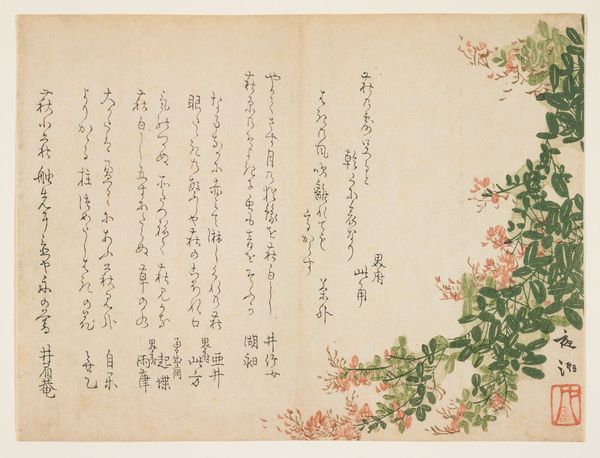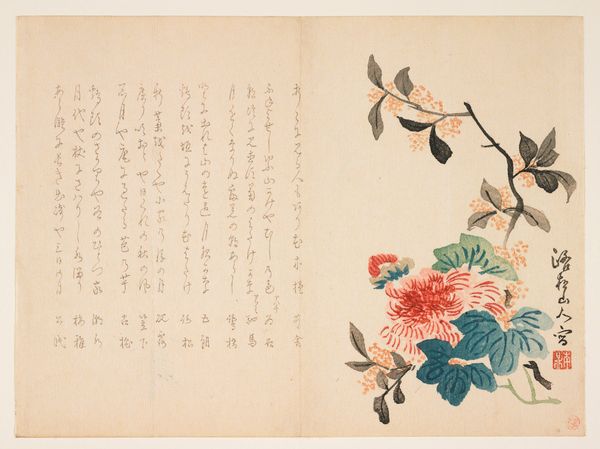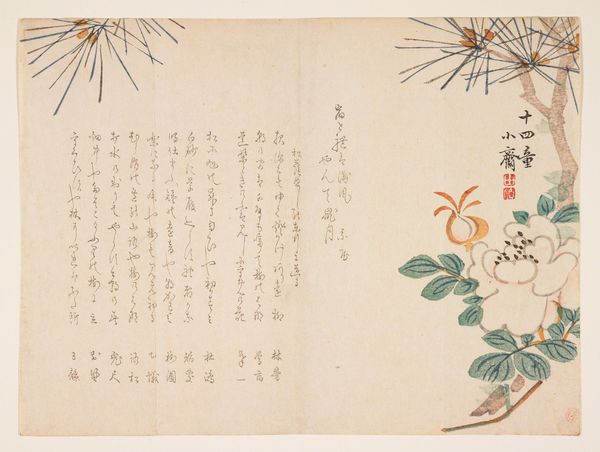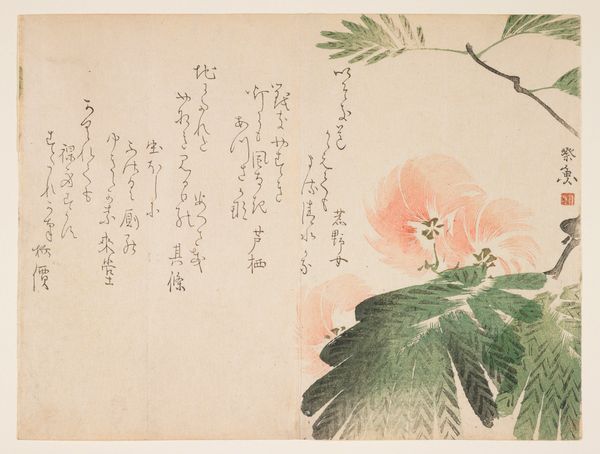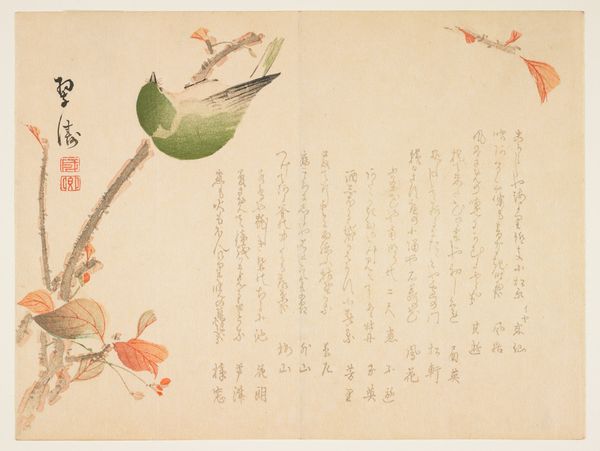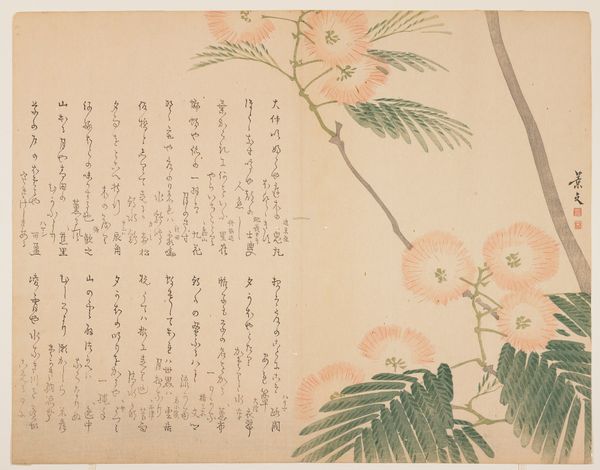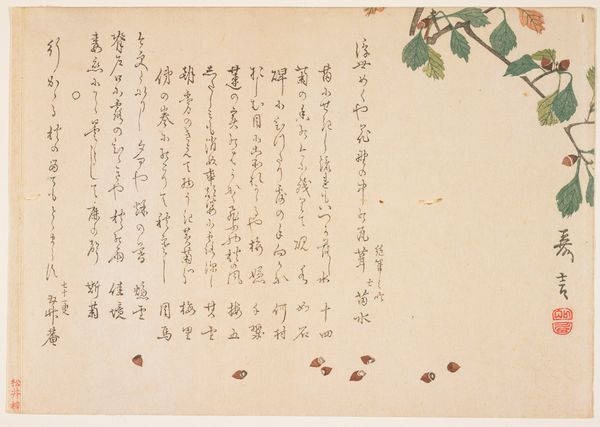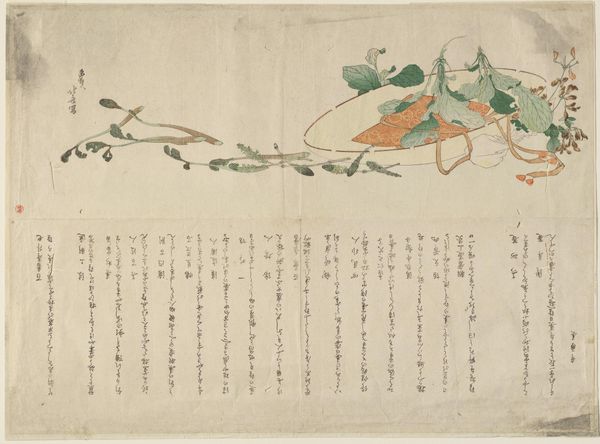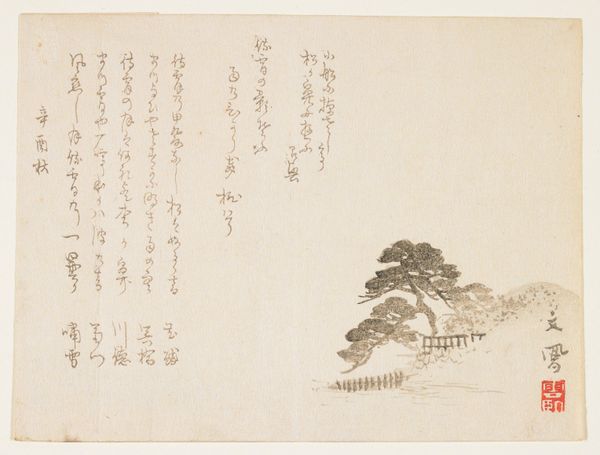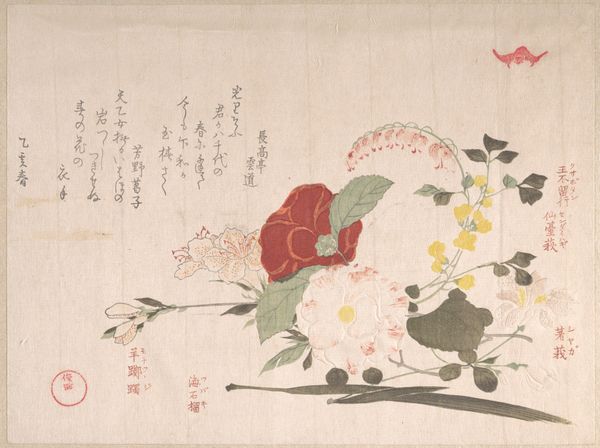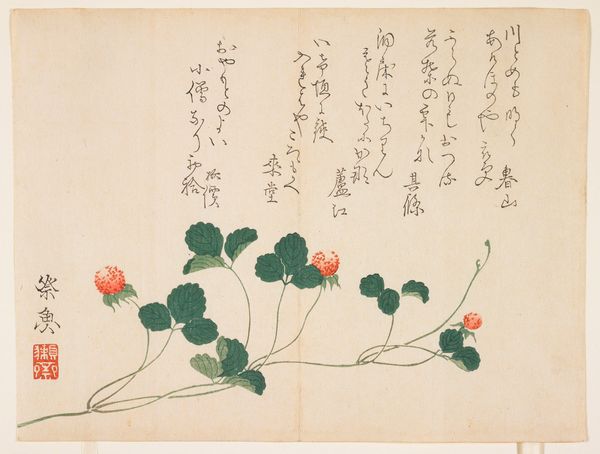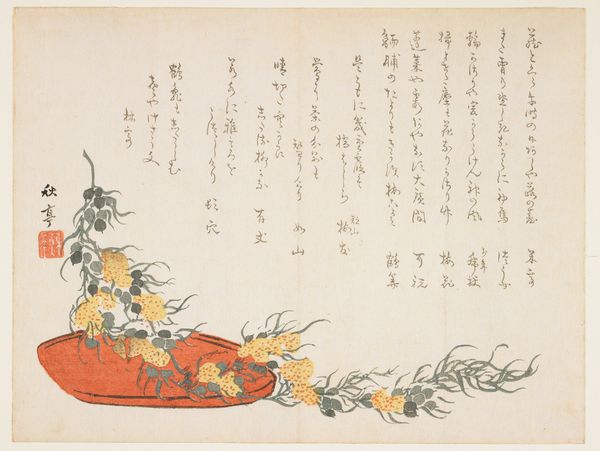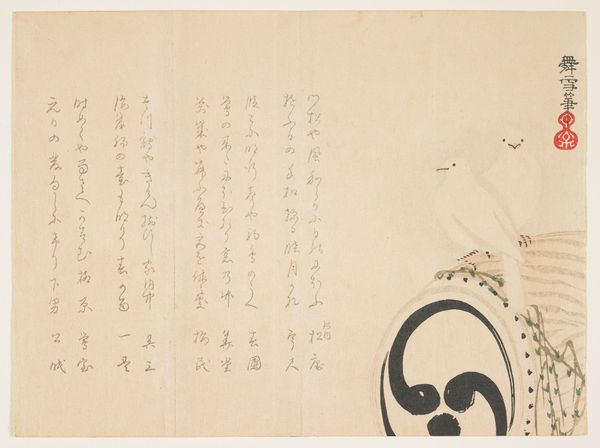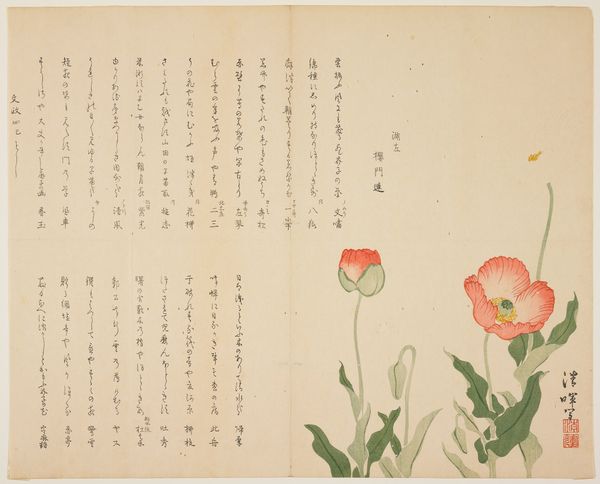
print, paper, ink, woodblock-print
#
water colours
# print
#
landscape
#
ukiyo-e
#
japan
#
paper
#
ink
#
woodblock-print
#
botanical drawing
#
watercolor
Dimensions: 7 5/16 x 9 3/4 in. (18.6 x 24.8 cm) (image, sheet)
Copyright: Public Domain
Hōshū created this image of violets, presented as a woodblock print, sometime in the late nineteenth century during Japan’s Meiji period. This era marked Japan's shift from feudalism to modernization, which opened the country to Western influences, but also sparked renewed interest in traditional art forms like ukiyo-e, or woodblock prints. Here, Hōshū uses delicate lines and subtle colors to depict a cluster of violets, a flower often associated with modesty and humility in Japanese culture. The inclusion of calligraphy adds layers of meaning, integrating poetry with visual art, a practice deeply rooted in East Asian artistic traditions. But what does it mean to depict violets, these small and often overlooked flowers? Perhaps Hōshū is inviting us to find beauty in simplicity, to recognize the value of the understated. In a rapidly changing world, he seems to suggest we should pause, reflect, and appreciate the quiet moments of everyday life. What do you feel when you spend time with this image?
Comments
No comments
Be the first to comment and join the conversation on the ultimate creative platform.
